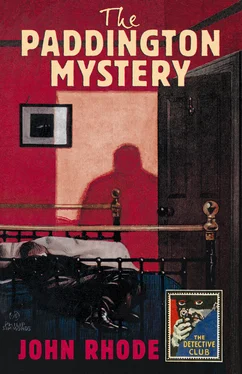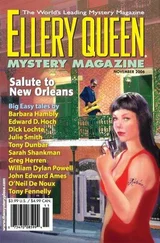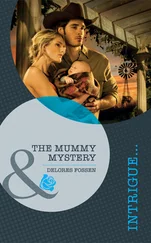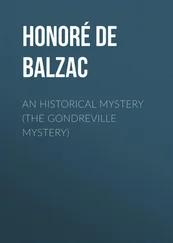The stopping of the taxi had interrupted the train of his thought. His stumbling exit provided him with a new sense of grievance, as he became conscious that he had barked his shins. He felt himself a deeply ill-used man as he turned into Riverside Gardens and splashed unsteadily through the puddles which had collected on its disreputable paving. On either side of the short road, a backwater, hidden away in this remoter part of Paddington, the unkempt front gardens of a row of tumble-down two-storied houses stood, dark and smelling of the rubbish they harboured. He passed them all, and turned in through the gateway in the low wall of the last garden on the right-hand side. He had reached home safely.
Number 16, Riverside Gardens was, perhaps, the least decayed of the row that bore this surprising name. From the narrow pavement of the cul-de-sac an asphalt path some ten yards long led through what had once been a garden, but was now merely a plot of waste land covered with rubbish, to a doorway screened by a ramshackle porch. You mounted a couple of steps, and from the top of these the mystery of the name was revealed. A low wall bounded the end of the cul-de-sac and the side of the garden; on the other side of this, dank, ill-odorous and forbidding, lay the stagnant waters of the Grand Junction Canal, an inky liquid besprinkled with nameless flotsam. It only needed sufficient imagination to see in this melancholy ditch a river, and in the desolate patches of earth before the houses a wealth of vegetation and the unexpected nomenclature became obvious.
Your enquiring mind thus set at rest, you explored the doorway in front of you. You had a choice of two panels on which to rap—there was no sign of a bell, merely the narrow orifice of a Yale lock on either door. One of these doors led into what was known by courtesy as ‘The Shop’; so much you could guess by peering through the filthy panes of the window on your left. Above this door you might have deciphered the name ‘G. Boost.’ From your necessarily limited survey through the window you would probably gather that Mr Boost’s shop was devoted to the accumulation of all the rubbish that the march of progress has banished from the Victorian middle-class home.
It was into the lock of the other door that Harold Merefield, not without some difficulty, occasioned by the reluctance of his hand to find the more distinct of the images conveyed to his brain by his eyes, inserted his key. The door swung open, revealing a narrow flight of stairs, rather surprisingly covered with a worn but excellent carpet. These heavily surmounted, the tenant of this curious dwelling reached a small landing, off which two doors led. He opened that towards the front of the house, stumbled in, knocked clumsily against various pieces of furniture, and at length, after much vain groping, accompanied by muttered curses, found a box of matches and struck a light. This done, he flung his coat in a heap upon the floor, and sank into a remarkably comfortable and well-cushioned chair.
The spectacle of a young man in impeccable evening dress sitting in a luxuriously-furnished room in the heart of a particularly ill-favoured slum might reasonably have been considered a remarkable portent. But then, Harold Merefield—his name, by the way, was pronounced Merryfield, a circumstance which had led to his being known as ‘Merry Devil’ to certain of his boon companions at the Naxos Club—was, in every respect, a remarkable young man. It had always been understood that he was to succeed his father, an elderly widower and a respected family solicitor, in his provincial practice. However, on the outbreak of war he had secured a commission, and had served until the Armistice without distinction but with satisfaction to himself and his superior officers.
Meanwhile his father had died, leaving far less than his only child had confidently expected. And on demobilisation Harold had found himself possessed of a small income, of which he could not touch the capital, an instinctive dislike of the prospect of hard work, and a promising taste for dissipation. His problem was so to reconcile these three factors as to gain the greatest pleasure from existence. He solved it in his own fashion. There were reasons which drew him towards London, and particularly towards Paddington. By a curious chance he saw the notice ‘Rooms to Let’ painted in sprawling letters on a board propped up in Mr Boost’s front garden. The idea tickled him; he could live here in such seclusion as he pleased, spending the minimum on rent and thereby reserving the maximum for pleasure. To this unpromising retreat he moved so much of his father’s furniture as the place would hold, the remainder he sold. His orbit in future was bounded by the Naxos Club on the one hand and Riverside Gardens on the other.
But sometimes, deviating slightly from this appointed path, as a comet surprises astronomers by its aberrations, he touched other planes of existence. Revelling in the content of idleness as he did, he yet felt at long intervals that irresistible itch which impels the hand towards pen and paper. The eventual result was a novel, which, with engaging candour, he himself described as tripe. Tripe indeed it was, but tripe which by the method of its preparation had acquired a pronounced gamy flavour. It dealt with the lives and loves of the peculiar stratum of society which frequented the Naxos Club. To cut a long story short, Aspasia’s Adventures was accepted by a firm of publishers who, as the result of persistent effort, had acquired an honourable reputation for the production of this type of fiction. With certain necessary emendation, the substitution of innuendo for bald description, it was published, and brought its author a small sum in royalties, a few indignant references in the more hypocritical section of the Press, and an intimation from the publishers that they would be prepared to consider further works of a similar nature. But it brought more than this. It brought the means of quieting the last scruples of an almost anæsthetised conscience. Harold Merefield’s method of life was crowned by the justification of a Career.
But it was not of his career that Harold was thinking as he lay in his comfortable chair. In fact, he found it difficult to think consecutively about anything at all. He knew that he was tired and sleepy, but the act of closing his eyes produced an unpleasant and nauseating sensation, in some way connected with rapidly-revolving wheels of fire. It wasn’t so bad if he kept them open. Certainly the flame of the candle refused to be focussed, and advanced and receded in the most irritating fashion. A wave of self-pity flowed over him. He was a wretched, lonely creature. Vere had forsaken him, Vere, the girl he had given such a good time to all these months. Vere’s form kept getting between him and the candle, tantalising, mocking him. Somewhere, in the dark corners of the room, another female form hovered, a reproach, a menace to his peace of mind. He laughed scornfully. Oh yes, it was all very well for April and her father to upbraid him as a rotter, to fling the authorship of Aspasia in his teeth. Why couldn’t they say straight out that Evan Denbigh was a more desirable match for April? Damned young prig! He hadn’t the guts of a louse.
For a moment his fluttering thoughts lit upon the person of Evan Denbigh. His sweeping condemnation was followed by a wave of generosity. Good fellow, Denbigh, at heart, but not at all his sort. Hardworking, clever fellow, and all that. Of course, April would prefer him to a miserable lonely devil like himself. Let her marry him; he would take his revenge by showing them what he could do. He could write a best-seller if he put his mind to it. Yes, by Jove, he’d start now.
He leapt from his chair, stood for a moment as though balancing himself on a narrow ledge, then sank back once more, dispirited. What was the use? Who cared what he did? April was beyond his reach, Vere had chucked him, the fire in the untidy grate was out long ago. There was nothing for it but to go to bed.
Читать дальше












